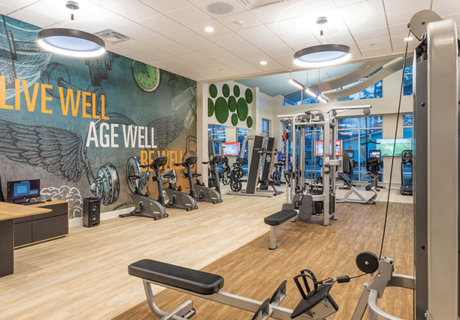EFA Expo Keynote: Designing A Future Of Healthy Brains
Corinna Lathan, co-founder and CEO of AnthroTronix Inc., began her company more than 20 years ago in an effort to blur the lines between humans (anthro) and technology (tronix). Her love of space travel, specifically Star Trek, as early as the second grade, was the beginning of this journey, which included subsequent degrees in aerospace engineering and neuroscience help, and led to her work and involvement with organizations that seek to use technology as an enabler of human function.
Her opening keynote at the 2019 EFA Expo in Salt Lake City, April 8, gave attendees an overview of some of the technologies and tools being developed to possibly help and enable persons with Alzheimer’s disease, dementia, and other negative effects of aging to live better lives. “I believe that technology is not only for just for making us healthier and stronger, it’s also for designing environments that connect us to each other and enable lifelong learning and exploration,” said Lathan.
Lathan’s work has spanned sectors and focuses, from creating teaching tools for children with severe cerebral palsy to working for the Defense Advanced Research Projects Agency developing technology for a cognitive assessment or a “brain thermometer” to test and track cognitive fitness or brain health as military personnel are deployed. Lathan was asked to use this same tool to track dementia patients with cognitive decline. The research work, funded by the BrightFocus Foundation and the Geoffrey Beene Alzheimer’s Initiative, was focused on recruiting dementia patients as part of the study and, in most cases, needed the consent of a cognitively healthy caregiver to be part of the study. However, none of the caregivers could pass the test, showing a need to shift the focus of the research to the caregivers themselves and so the Health-e Brain Study was launched, focusing on learning more about caregivers’ cognitive and mental health and how to improve it.
“We’re ignoring the brain. It’s not just caregivers and active duty military [personnel] who are victims, we all are,” she said. For example, during a doctor’s visit, patient’s temperature, blood pressure, weight, and height are recorded but nothing’s done to measure or assess cognitive function. “We do nothing to track our brain health,” she said, despite the fact that we know there are 44 million people with dementia worldwide and that number will increase to about 75 million in the next few decades. “Seventy-five percent of our resources are taken up with dealing with the aged and infirm, so this is a pretty bleak future of aging.”
The speaker also cited data that people want technology that helps them retain and improve their capabilities throughout their lifespan. This could be used to address loneliness, which is the number one predictor of functional decline in the elderly.
While noting that there are a lot of different technologies, tools, and consumer products on the market or in development to try help keep people connected and maintain function, she noted that it’s important for people to come together and use technology appropriately. For example, although there’s literature available that says many chronic diseases associated with aging can be prevented or reversed by eating better, exercising, reducing stress, and loving, all without technology, imagine what we can be accomplished if you combine these lifestyle changes with technology, she said.


